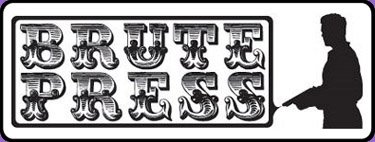So a couple of years ago, this guy that I know wrote a paper about....
Oh wait, it was actually me. I wrote the paper. I don't know why I would attribute that to anybody else.
Pitfalls of authorship aside, I wrote my paper for Agnes Heller's class on Marx about the exchange value of language, or the value of symbolic exchange, or some other garbling of terms.
Basically, my point was that exchange value, rather than be a completely abstracted version of use value (and hence, in the eyes of many latter-day Marxists, somehow inauthentic or otherwise false) did indeed provide a real value. When two craftspersons decide to exchange their goods, in the ideal barter of economic theory, they must undergo a thought process that determines price. This is based on all the classic economic things like supply and demand, resale potential, etc. Marx lumps this into "exchange value" to distinguish it from use value: the value via exchange versus the value via use.
But, what I was trying to draw attention to was that the actual exchange value agreed upon must fall within a certain range within the minds of the craftspersons. The actual value may vary, but still, the value must "make sense".
My friend used the very witty example (I mean, I did--I was the witty fellow) of a car offered for trade in exchange for a lump of shit. Everybody knows that the value of a car is more than that--the exchange simply doesn't make sense. Of course, we all want a cheap car, but if one was willing to partake in this exchange one would be an idiot, because the exchange value implies that the car is shit. Anything else doesn't make sense.
There is, in the semiotic logics of exchange, a certain implied rationality. Numbers have their logic, and exchange must as well, otherwise the language upon which the market is based falls apart. And this is not a good thing, to destroy markets. Markets, in their pure, theoretical example, provide the plateau upon which societal use value is reflected. If you can't talk about an object, no one will use that object. You can quote me on that--a law of economic humanity.
Now: this other guy I know wrote this blog post... well actually, I don't know him. His name is Mark Thoma, and he writes on the very in-depth blog, Economist's View, about complicated economic things that I can't always understand but wish that I could.
Mark Thoma wrote this blog piece about "The Need for Reliable Information". In his view, a large facet of the current crisis is "the complete breakdown of traditional information flows, and a loss of confidence in the models used to evaluate that information. Markets need information to work properly, and the information financial markets need is not available."
Yes! I guy I know couldn't have said it better himself! Here are his (Mark's, not that other guy) main bullet points:
- investors can no longer trust what ratings agencies tell them
- investors can no longer believe the numbers they see on bank books
- Investors no longer trust analysts and the models they use (particularly when it comes to risk)
- it's going to be difficult to convince people they can trust this information again
It is a combination: both the models (numbers) broke down, and the flows of information (subjective language tangled into the knot we call trust/belief).
You can work out the numbers, but until you have information flowing again, any model that in any way relies on "rational choice", or other similar generalized subjectivity has the capacity to become unhinged and useless. Unfortunately, a lot of people make a lot of money lying to people. It's what causes bubbles--that and the playing with numbers into sneaky derivatives (more as a concept, rather than the CDOs). Debt is a node in exchange value, and a lie is a node of language exchange, in but a complete lack of information is a failure of the market. We either need truth, or lies we can believe in.
Predictions for 2012
12 years ago



No comments:
Post a Comment